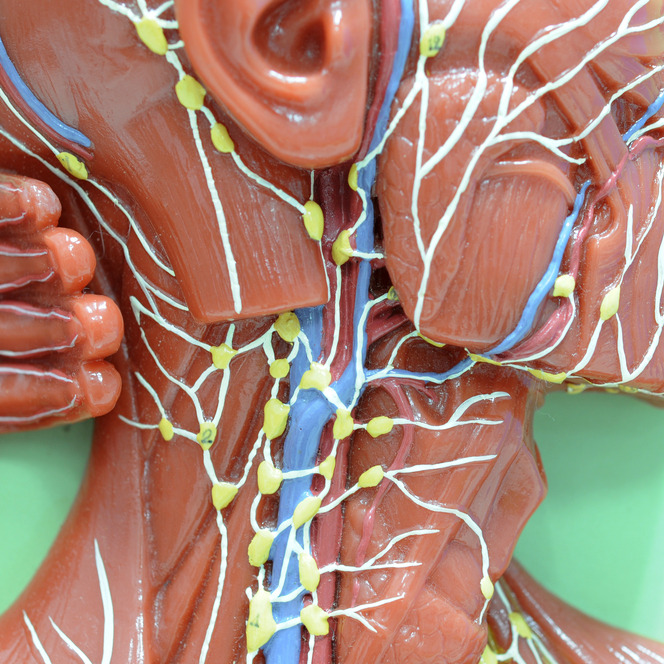
The lymphatic system
An invisible miracle of health and immune defence
The lymphatic system - hardly any other part of our body remains so hidden and at the same time is so essential for our health and our immune system.
But what exactly is the lymphatic system, how does it work and why is it so important for us?
This blog post will give you a detailed insight into this fascinating network that runs through our body.
What is the lymphatic system?
The lymphatic system is part of the circulatory system and an important organ of the immune system.
it consists of a fluid called lymph, lymphatic vessels that transport this fluid, lymph nodes that act as filtering stations, and lymphatic organs such as the spleen and the thymus gland.
The components of the lymphatic system in detail:
- Lymph: This clear fluid transports nutrients, oxygen and hormones to the cells. At the same time, it collects waste products and toxins, which are then filtered through the lymph nodes.
- Lymphatic vessels: Similar to blood vessels, they run through the entire body. They are responsible for transporting the lymph.
- Lymph nodes: as small, bean-shaped structures, they are distributed throughout the body. They filter the lymph and remove foreign bodies such as bacteria and viruses.
- Lymph organs: These include the spleen, the thymus gland, the tonsils and the bone marrow. They are important for the production and maturation of lymphocytes, the white blood cells.
How the lymphatic system works
The lymphatic system works closely with the blood circulation. While the blood carries oxygen and nutrients to the cells, the lymph absorbs excess fluid and waste products.
The lymph flows through the lymph vessels and passes through several lymph nodes, where it is purified . The purified lymph is then returned to the bloodstream .
The importance of the lymphatic system for immune defence
Immune defence is one of the most important functions of the lymphatic system.
Lymphocytes, special white blood cells, are crucial for recognising and fighting pathogens.
There are different types of lymphocytes, including T cells, which recognise and destroy infected cells, and B cells, which produce antibodies.
Lymphoedema: a common disease of the lymphatic system
Lymphoedema occurs when lymph fluid cannot drain properly and instead accumulates in the tissues.
This leads to swelling, usually in the arms or legs. Causes of lymphoedema can include genetic predisposition, injury or surgery.
How to support the lymphatic system
A healthy lymphatic system is very important for maintaining our health. Here are some tips for supporting the lymphatic system:
- Exercise: Regular exercise such as walking, jogging or swimming promotes lymph flow.
- Balanced diet: A diet rich in vegetables, fruit and wholemeal products supports lymphatic function.
- Drinking water: Sufficient fluids help to dilute the lymph and improve its flow.
- Massage: Special lymph drainage massages can stimulate lymph flow and help treat lymphoedema.
- Relaxation techniques: Stress can weaken the immune system . Relaxation techniques such as yoga or meditation can help to keep the body in balance.
The role of the lymphatic system in diseases
The lymphatic system plays a role not only in infections, but also in other diseases. For example, cancer cells can metastasise via the lymphatic system.
Healthy lymphatic function is therefore also important for preventing and fighting cancer.
Conclusion
The lymphatic system is a complex and vital network that plays a key role in our health and our immune system .
by supporting our body through exercise, a balanced diet and sufficient hydration, we can promote the function of the lymphatic system and strengthen our immune system.
We hope that this blog post has given you a comprehensive insight into the lymphatic system and that you now understand how important it is for our health.
Take the time to look after your lymphatic system - your body will thank you for it!
Become a member now
As a member, you will receive further information and frequencies on this topic! Log in here!
